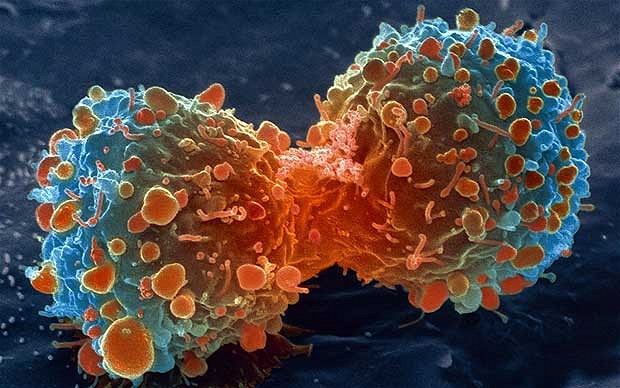Free informational cancer seminars Brisbane June 15 – 21 2014 Brisbane.
Click the link below to see other events presented by QIMR – for immunology week June 15 – 21 2014 Brisbane.
How your body can fight cancer Seminars
 Promising Results from World-First Brain Cancer Trials Professor Rajiv Khanna Joins Grace Gawler on Navigating The Cancer Maze To Talk about a Brain Cancer breakthrough.
Promising Results from World-First Brain Cancer Trials Professor Rajiv Khanna Joins Grace Gawler on Navigating The Cancer Maze To Talk about a Brain Cancer breakthrough.
Phoenix, AZ — 06/13/2014 — Voice America Talk Radio Network, Internet broadcasting pioneer, producing and syndicating online audio and video, today announced that Professor Rajiv Khanna QIMR Berghofer Medical Research Institute Australia will join Grace Gawler host of Navigating the Cancer Maze program on the VoiceAmerica Health and Wellness Channel (http://www.voiceamerica.com/show/2125/navigating-the-cancer-maze) Friday, June 13, 2014 at 12 noon Pacific Time.
NOTE: show goes live to air 5 am Brisbane Australia time Saturday 14 June 2014. Available streaming audio any time after 9 am this Saturday and available to download on itunes indefinitely.
It is imperative that breakthroughs in cancer treatments are known to the world. Worldwide, there are an estimated 240,000 cases of brain and nervous system tumors diagnosed each year; GBM is the most common, and the most lethal of these tumors. People speak of the War on Cancer, but it is our bodies that are at war with cancer cells via our immune system and its responses. Utilizing the immune system principle, scientists at the QIMR Berghofer Medical Research Institute, Australia, have used immunotherapy to create a major breakthrough in the treatment of the brain cancer known as Glioblastoma Multiforme (GBM). Study leader, Professor Rajiv Khanna, said most of the study participants lived much longer than the six-month prognosis normally given to a patient with recurrent GBM, and some patients showed no signs of disease progression. “It is early days, but this is exciting,” Professor Khanna said.
“Survival rates for this aggressive cancer have barely changed in decades. There is an urgent clinical need for new treatments. “If this treatment can buy patients more time, then that is a big step forward.”

GBM is the most common malignant brain cancer, diagnosed in about 800 Australians every year. Despite surgery, radiotherapy and chemotherapy, less than 10% of patients survive beyond five years. This study built on previous research which found that many brain tumours carry cytomegalovirus (CMV). About half of all Australians have the virus, but usually show no symptoms.
Professor Khanna developed a technique to modify the patients’ T-cells in the laboratory, effectively “train” them to attack the virus, and then return them to the patient’s body. When the killer T-cells destroyed the virus, they also destroyed the cancer. “It’s becoming increasingly clear that immunotherapy – manipulating a person’s own immune system – is a rich new frontier for cancer treatment,” Professor Khanna said.
The QIMR is celebrating their research findings by hosting a series of immunology and cancer presentations between June 15 and June 21 in Brisbane. For those people who cannot attend, watch out on the websites for more information. www.qimrberghofer.edu.au or www.gracegawlermedia.com
The Phase I trials were conducted at Brisbane’s Wesley Hospital, under the leadership of neurosurgeon Professor David Walker. “Working with patients with malignant brain tumors can be distressing, because we know so many will succumb,” Professor Walker said. “But this new branch of therapy lets us offer some hope that the future is going to be brighter, that new and innovative treatments mean things will hopefully improve in the future. “We have a long way to go, and there is hard work to be done, but we seem to be on the right track, and it is a pleasure to work with scientists at QIMR Berghofer to try to make a real difference.”
The research team is now keen to begin the next phase of trials, involving patients at an earlier stage of the cancer’s development. “These would be patients who have just been diagnosed and are about to start the standard treatments – surgery, then radiotherapy or chemotherapy. We would generate the T cell therapy before their standard treatment, and then administer T cells in conjunction with the standard therapy,” Professor Khanna said.
“We hope that the treatment can be even more effective if given at an earlier stage of the disease.”
This study is published online in the prestigious US journal Cancer Research and can be viewed at http://cancerres.aacrjournals.org/content/early/recent
The research was funded by Flagship Funding from the Rio Tinto Ride to Conquer Cancer, the NHMRC and private donors.
The QIMR Berghofer Medical Research Institute is a world leading translational research institute focused on cancer, infectious diseases, mental health and a range of complex diseases. Working in close collaboration with clinicians and other research institutes, our aim is to improve health by developing new diagnostics, better treatments and prevention strategies.
For more information about QIMR Berghofer Visit: www.qimrberghofer.edu.au
